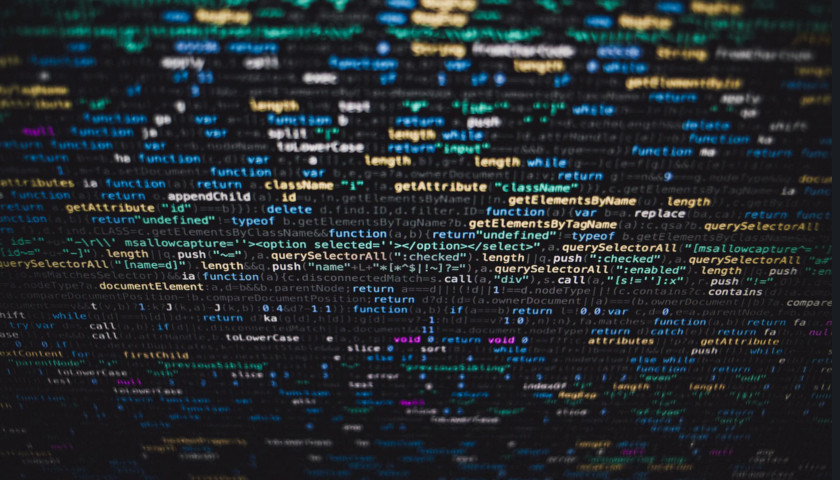by Robin Burk
The deep state, and the administrative elites more broadly, are in deep digital trouble. And so are their current narratives. But it’s not clear they fully realize it yet.
We all love a good story. Stories delight us, reassure us, carry us away to another world. They are hypnotic. We narrow our focus, ignore our outer senses, and experience an imagined reality instead.
Most of us no longer spend cold winter nights sitting close to a fire as the old stories are told in the dark—as a voice hidden in the shadows embellishes the tale, frightening or entrancing us. But we’re surrounded by stories nonetheless.
Today television, movies, and videos bring a new, tech-enabled power to stories told by people we’ve never met. Sights and sounds draw us in. Background music manipulates our emotions. The camera draws us to a single face, or a carefully cropped scene. These become our reality for a time. They stick with us, echoing in the back of our minds long after the sun comes up and we go about our daily lives.
There was a time before videos when writers labored to evoke similar responses. Long novels with elaborate descriptions and carefully crafted dialogue, widely distributed thanks to printing presses, placed the burden of imagination on the reader. Carefully reasoned essays made explicit, step by step arguments. Newspaper columns tried to bring you to the scene of the crime. But what you might invoke inwardly when reading a classic novel and what I might invoke could differ greatly.
Today’s tech, on the other hand, implants sensory inputs directly into our brains, evoking visceral emotions and bodily responses. We are no longer co-creators. Instead we are recipients manipulated by agents behind the scene.
Powerful stuff. So it’s not surprising that the use of narrative for political purposes has reached fevered proportions. Orators in the city square, preachers at a pulpit reached only a limited few in times past. Today’s sensory evoking stories reach millions within seconds. They get copied and shared with viral sensation, along with interpretations that reinforce their effect.
Not Your Father’s Mass Media
We’ve come a long way since the first patent for radio transmission of voices was issued a little over a century ago. By the time of Franklin Delano Roosevelt’s fireside chats the medium had begun to have a serious political and social impact. By the 1950s many American households had a small black and white television. Families spent evenings around their set, laughing at comedies or absorbing the news as delivered by a small group of presumed authoritative voices. Dragnet’s Jack Webb assured us he sought “just the facts.” Many viewers trusted famous name anchors to be just as objective in their reporting.
Cinemas also expanded their reach and impact with the realism of high definition color images and rich, realistic sounds. Films and characters became a shared cultural experience, touchstones for a generation. People chose to go to a theater, buy a ticket, share the experience with others around them, then emerge into the fresh air and daily life again.
Now we’re in the digital age. And we’re just beginning to see how utterly revolutionary, how disruptive, it truly is. Disruptive, or the final nail in the coffin of individual liberty, or both? But first, consider the disruption.
If the 20th-century media were all about storytelling through analogues to real-life sensory experience, the digital age is all about data. And although the rise of computing and data networks initially greatly empowered the deep state and more broadly the administrative elites, we have now reached a tipping point—or at a minimum, a crucial battle. For the digital age, built on data, increasingly is undercutting those who built their power upon it. But it threatens to cement power in a replacement elite that lacks even the pretense of direct accountability to voters.
Unlike the arc of narrative analog media, digital data are, at their core, discrete bits of information. They can be stored, consolidated, shared, analyzed, modified, and compared with ease. Most importantly, although data certainly can be tendentiously and selectively gathered or used, by their nature data are neutral. “Just the facts, ma’am.“ And today the power to collect data and promulgate competing analyses of it is in the hands of every cell phone and tablet user in the world.
Consider the scene on the nation’s Mall less than a year ago. A few Native American activists belligerently confronted several teens in MAGA hats who were waiting for their bus after the March for Life. Immediately afterwards a brief video clip was released and went viral, along with claims about racist behavior by one student. The narrative was rapidly picked up by sympathetic TV news readers, newspaper writers, and social media personalities.
It was quite a polished production, and had a serious impact. People who had never visited the National Mall, and who certainly weren’t there for the confrontation, grieved and raged aloud at those horrible, privileged, racist, condescending young white men. Death threats were phoned in to a student who, mistakenly identified, wasn’t even at the March.
And then? And then a video of the full encounter, captured by cell phone, also hit social media. Shaky and clearly unedited, it too was spellbinding—but it told a very different story than the one activist and his apologists were busy promulgating.
Soon older footage of the activist emerged, along with accounts of his unreliable past claims and attempts to create confrontations for his advantage. Eventually the MAGA hatted teen’s lawyers announced they would file defamation suits against several major media outlets for their role in smearing him personally and irresponsibly.
The activist’s narrative, which fit many preconceptions on the Left and in the media, failed. It was disrupted by competing data, data that also went viral. Surely the men who labored in Stalin’s labs to erase from photographs the images of comrades who had fallen into political disfavor would be deeply jealous of those promulgating edited videos today. After all, most cell phone users have access to apps that can do that with a few swipes.
But the narrative failed because data has a life of its own unless it is suppressed.
The New Brave New World of Data
If Stalin’s photo editors would be out of work today, what of the CIA and other experts who once labored to detect and interpret those altered photos? Who installed wiretaps and recording devices inside walls? Met shady characters in shady alleys? What of the intelligence analysts and field operatives who prided themselves on specialized knowledge about distant places? Whose reports shaped the policies of presidents and the diplomatic efforts of embassies around the world? Who were privileged to decide what narrative should guide national decisions and the use of national power?
What is their role today, when AI and machine learning increasingly give us software that can translate foreign languages with subtle accuracy? When autonomous systems can collect information in huge quantities and make it available for a wide range of analysis and interpretation?
Whatever that role is, it no longer is exclusive. One no longer needs a stint in Skull and Bones at Yale or similar Ivy League credentials to qualify, nor even to be part of a targeted minority. One might be, say, an enlisted military intel analyst looking for insights that directly inform current tactical operations in a distant place instead.
I once asked a former senior CIA analyst, a woman who’d led a high profile team whose findings stirred political controversy, how she might work with junior assistants or software agents in a way that could extend her analytic efforts. My team was exploring ways to extend her ability to effectively use massive amounts of digital data. Her response? “I wouldn’t. I only trust my own judgement.”
Contrast that with the Palantir software whose development Big Tech critic Peter Thiel funded. Palantir has been used by many military analysts to share information, identifying both their individual evaluations of it and also what they see as open questions and conflicting interpretations. Palantir is inherently digital in its DNA.
There’s a clue in that contrast to many recent doings inside the Beltway, including some around retired Lt. Gen. Michael Flynn and high level officials in the Obama administration.
Digital data has broken open the monopoly of the administrative elites on creating and promulgating narratives for political and social effect. For every Hollywood new release and hours long award extravaganza, there are videos captured and distributed online with a variety of other messages. For every tendentious, slanted news broadcast or article in the media, there is an army of people digging up counterfacts, omitted context, and embarrassingly contradictory claims made not long ago by the same outlets.
For every regulatory agency whose entrenched bureaucrats release reports intended to increase their funding and power, there are individuals, non-profits, and experts who can proffer data that tells a very different story.
And therein lies the fatal weakness for the deep state. When computing was expensive, when access to data was limited to those in official roles, knowledge was power for them. Today digital data is easy to copy and to share, and old records are still accessible for the purpose.
Big Tech Races to Fill the Power Void
But in their place Big Tech is rising fast to seize the forfeited power. If you can’t see alternate data or interpretations, they can’t influence you. If your online search is subtly and deeply redirected, you assume you have the full story.
And now arises the use of AI and machine learning to create “deep fakes”—artificially constructed photos and videos that even experts cannot distinguish from actual recordings. Deep fakes threaten to restore the primacy of sensory manipulative narrative, with a political vengeance. They make faked pee dossiers and third hand “whistleblower” charges look like the work of childish amateurs.
We have a fast closing window within which to act. Just as the Second Amendment provides a basis, however unequal, for citizens to retain liberty in the face of government force, so too we must demand that our right and our means to share and analyze data be preserved. Big Tech data monopolies and censorship must be directly opposed and penalized. Alternate platforms must be created. Transparency into data collected by federal and other levels of government must be ensured, at the cost of ending budget funding for programs and officials that stonewall.
The deep state, secure in its power for a long time and inherently bureaucratic, collected the text messages and emails and reports that ironically will expose what appears to be their attempted coup against the power of voters under our constitutional mechanisms to select the national chief executive and key national policies. Or at least this data will do so if the furious stonewalling by those involved is finally overcome.
That will be an important step. But the battle is deeper and will rage on more broadly unless we effectively pry ownership and distribution of a great deal more data from those who feel privileged to screen and interpret it without us. There is no place to be neutral in this fight.
– – –
Robin Burk started her career wearing bell bottom jeans in the basement of the Pentagon, where she had the challenging privilege of interacting with computing legend Grace Hopper, and in Silicon Valley, where she wrote one of the first commercially deployed Internet protocol software stacks. The remainder of her first career half was spent in roles through senior executive in small and mid-sized tech companies serving defense and national security customers in the US and abroad. After the attacks of 9/11 Robin taught in two departments at the U.S. Military Academy (West Point). Returning to the Beltway area, she grew a fledgling research grant program in the new discipline of complex network systems at the Defense Threat Reduction Agency, center of U.S. counterWMD expertise, then led a team that addressed national security and commercial applications at a major R&D organization. Today her passion is helping organizations and individuals make the best responses to disruptive tech-driven change. Along the way she picked up a PhD in artificial intelligence and some DOD civilian medals. She is currently being trained by a young English Cocker Spaniel whose canine appreciation for social compacts rivals that of Confucius and his followers.




